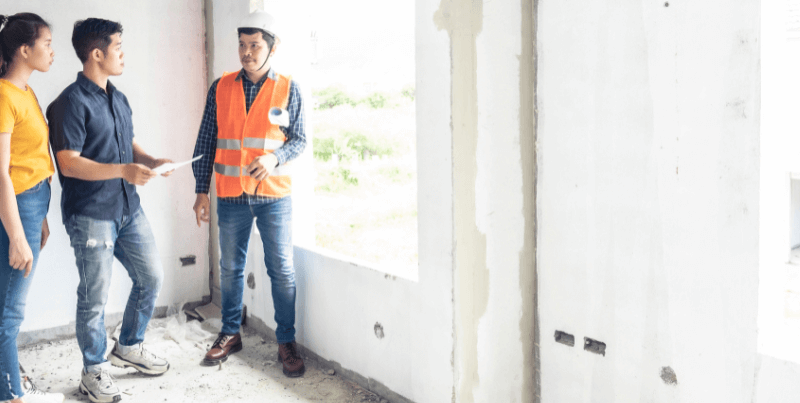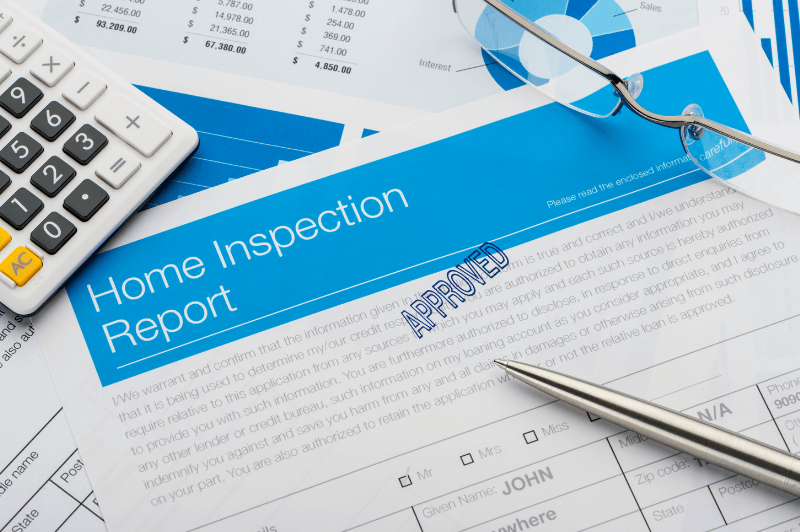
Understanding the home inspection process is crucial. Especially when you’re the one who tries to get the home out in the market. A home inspection is a thorough examination of a property’s condition, often a vital part of the home buying and selling process. As a home seller, it’s essential to know what this process involves, from the role of the home inspector to understanding the inspection report.
Preparing For a Home Inspection
A home inspector is a professional who assesses a house’s physical structure and various systems, from the roof to the foundation. The inspector examines critical areas such as electrical systems, HVAC systems, and water heaters and checks for safety issues like radon, termites, and water damage.
Importance of Openness with the Realtor
Being open with your real estate agent or realtor about any known issues can help manage the expectations of potential buyers. Disclosing known problems, such as an infestation or issues with electrical panels, shingles, gutters, or faucets, can avoid surprises during the inspection.
Major Issues Inspectors Look For
Inspectors focus on identifying significant issues in a property. They thoroughly check crawl spaces, inspect for structural integrity, and assess the home’s exterior and interior condition. Issues like damaged gutters, faulty water pressure, or problems with downspouts are noted, as they can lead to significant water damage.
Costs of a Home Inspection
The home inspection cost can vary based on the size and location of the home. It’s a necessary investment for homeowners as it provides peace of mind about the condition of their new home.
Home Inspection and Home Buying Process
For those considering cash home buyers in Minneapolis, it’s essential to understand that lenders often require a home inspection. The home inspection process includes a comprehensive walk-through where every part of the home is checked. This process helps identify any red flags that might affect the sale price or lead to significant future expenses.
The Value of a Home Inspection Report
A detailed home inspection report is invaluable. It provides a record of the condition of the home, which can be critical for first-time buyers or those purchasing older homes. This report is also essential for meeting home inspection contingency requirements in a sales contract.
Additional Considerations for Sellers
Home sellers should also know specific requirements from organizations like the American Society of Home Inspectors (ASHI). Preparing for inspection day involves ensuring all areas of the home are accessible and that essential maintenance, like replacing light bulbs and testing smoke detectors, has been done. Sellers should also consider a warranty for their homes to reassure buyers and expedite the selling process.
The Seller’s Own Inspection
Conducting your inspection before the listing can be a proactive step. Using a home inspection checklist, you can identify and address issues in advance, potentially enhancing the property’s appeal and value.
A thorough understanding of the home inspection process, from the role of inspectors to the importance of a comprehensive report, is essential for any homeowner.
If you want to avoid the whole process, look for cash home buyers in Minneapolis. Especially when considering companies like Mill City Homebuyers for a swift and efficient selling process.
How Home Inspections Work
The home inspection process begins when a seller or buyer hires a qualified home inspector. For sellers eager to sell my house fast in St. Paul, this step is crucial in identifying potential issues that could hinder the sale. The inspector, often a member of the American Society of Home Inspectors (ASHI), schedules a visit to the property for a comprehensive evaluation.
Inspection Day Dynamics
On inspection day, the inspector conducts a detailed walk-through of the property. They assess various aspects, including the HVAC system, electrical systems, water heater, and plumbing fixtures like faucets. Inspectors also examine the roof, crawl spaces, and electrical panel for safety issues.
Focus on Critical Areas
Inspectors pay close attention to areas prone to problems such as water damage, infestation, and radon. They check for structural integrity, looking at shingles, gutters, and downspouts. The condition of the home is scrutinized for any major issues that could affect the sale price or lead to significant future expenses.
Duration of the Inspection
The time an inspection takes can vary based on the size and age of the home. Older and larger homes often require more time due to additional elements like older home systems and potential issues like asbestos.
Seller’s Preparation
For a home seller, preparing for the inspection is crucial. This includes ensuring that all areas of the home are accessible and that basic maintenance tasks, such as replacing light bulbs and testing smoke detectors, are completed. Being proactive can help identify red flags early in the selling process.
Need to Sell Your House Fast?
We make selling your house a simple affair. Don’t waste time and money in inspections!
Just fill out the form below or give us a call at: (612) 260-5577 to get your free, no-obligation cash offer!
What Does a Home Inspection Report Look Like
A home inspection report is a comprehensive document that outlines the findings of the inspection. It includes detailed descriptions and photographs of every inspected area, from crawl spaces to the electrical panel.
Reporting on Specific Systems
The report provides in-depth information on the HVAC, electrical, and plumbing systems. It assesses the condition of the water heater, air conditioning, and any safety issues like radon or smoke detectors.
Identifying Major and Minor Issues
Both major issues and minor concerns are noted in the report. Major issues might include structural problems, water damage, or signs of infestation, while minor concerns could be about gutters, downspouts, or water pressure.
Home Inspection Contingency
This report is crucial in the home buying process, particularly if there’s a home inspection contingency in the sales contract. It provides peace of mind to the buyer and informs potential buyers about the exact condition of the home.
Role in Negotiations
The findings in the home inspection report can play a significant role in negotiations between buyers and sellers. Issues identified in the report can lead to discussions about lowering the sale price, or the seller might agree to make repairs before closing.
For sellers working with cash home buyers in Minneapolis, the report can expedite the selling process by providing clear evidence of the home’s condition.
A comprehensive report also includes recommendations for maintenance and repairs. It might point out areas that need immediate attention or suggest future monitoring.
In essence, a home inspection report is an essential tool in the real estate process, providing a clear picture of a property’s condition and helping to guide the decisions of sellers, buyers, and lenders. For those looking to work with entities like Mill City Homebuyers, a well-documented inspection report can be a key factor in a successful transaction.

What Sellers Can Do After a Home Inspection Report
After receiving a home inspection report, it’s crucial for sellers to thoroughly review it. This report, detailing everything from the condition of the home to specific issues like water damage, infestation, or problems with the electrical systems and HVAC system, is a comprehensive overview of what might impact the sale price.
Prioritizing Repairs
Based on the report, sellers should prioritize repairs, especially those related to safety issues or major issues. Fixing problems like damaged shingles, leaky gutters, and malfunctioning smoke detectors can significantly increase a property’s appeal to potential buyers.
In cases where the seller is working with cash home buyers in Minneapolis, addressing these issues can lead to a faster sale.
Negotiating with Buyers
If the report reveals problems that the seller cannot or chooses not to fix, these can become negotiation points. Sellers might consider adjusting the sale price or offering concessions like covering part of the closing costs in Minnesota. This can be particularly relevant for sellers who want to sell my house fast in St. Paul or are dealing with older homes.
Disclosure and Transparency
It’s important for sellers to be transparent with potential buyers about the condition of the property. Providing a copy of the home inspection report can build trust and may protect sellers from future legal issues. This transparency is also appreciated by lenders and real estate professionals.
Conclusion
The home inspection process is a critical step in the home buying and selling journey. It offers a chance for both sellers and buyers to understand the true state of a property. It can be a valuable tool for sellers to ensure a smooth selling process.
Engaging a certified home inspector, possibly affiliated with the American Society of Home Inspectors (ASHI), ensures that the inspection is thorough and the home inspection report is comprehensive. This can be particularly crucial for first-time homeowners or those unfamiliar with the nuances of home inspection contingencies.
The cost of living in Minnesota can be high for people; thus, money becomes more important. If you want to avoid a home inspection that may decrease your home’s value, Mill City Home Buyers can buy out your home and get you cash immediately.
Ultimately, the goal is to provide peace of mind to the buyer and ensure a fair deal for all parties involved. Whether working with traditional buyers or exploring options like Mill City Homebuyers, a well-handled home inspection can be critical in achieving a successful sale.
